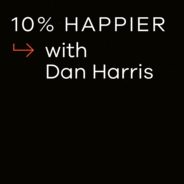All week, we've been running "best of" episodes as part of our Taming Anxiety series – and this is the final episode in that series. Leslie Booker (who goes by Booker) is one of America's leading dharma teachers. She's worked with incarcerated and vulnerable youth, she's done mindfulness and cognitive-based therapy work on Rikers Island, and she's written about best practices for teaching yoga in criminal justice settings. She's a graduate of three different training programs at Spirit Rock, including their four-year Retreat Teacher Training Program. In this conversation, Booker makes the case that one of the most important, even life-saving, tools when it comes to dealing with anxiety is our ability to connect with other people. And - like the three characteristics, Booker argues that the experience of anxiety is inherently impermanent, unsatisfactory, and unreliable (or, in Pali, it has the characteristics of anicca, dukkha and anatta). Understanding this fundamental truth, she says, can help us see our anxiety with more clarity, and therefore relate to it more skillfully. Booker also explains why bringing awareness to our bodies can help settle us in our most anxious moments. Just a note: this interview was first recorded in May of 2021, so you may hear a few slightly dated references, but the topic of anxiety, for better or worse, is perennially relevant. Join Booker next week as we re-launch the Taming Anxiety Challenge, over on the Ten Percent Happier app. To join the Challenge, just download the Ten Percent Happier app today wherever you get your apps or by visiting tenpercent.com. If you already have the app, just open it up and follow the instructions to join! Full Shownotes: https://www.tenpercent.com/podcast-episode/leslie-booker-repost

Gesundheit, Wellness & BeautyLeben & Liebe
10% Happier with Dan Harris Folgen
Self-help for smart people. World-class insights and practices from experts in modern science and ancient wisdom. Hosted by veteran journalist and best-selling author, Dan Harris.
Folgen von 10% Happier with Dan Harris
947 Folgen
-
Folge vom 28.01.2022Buddhist Lessons on Anxiety | Leslie Booker (2021)
-
Folge vom 26.01.2022How to Break Your Anxiety Habit | Judson Brewer (2021)This week, we're sharing some of the best episodes in our archives about anxiety. Dr. Judson Brewer is a psychiatrist and deep dharma practitioner who argues that anxiety is a habit, and is one that you can unwind. This interview explores: what is anxiety; why Dr. Brewer views anxiety as a habit; how mindfulness can be harnessed to deal with anxiety; and if there is any level of stress or anxiety that is healthy. Dr. Jud Brewer is the Director of Research and Innovation at the Mindfulness Center at Brown University and author of the New York Times Best Seller, Unwinding Anxiety. He has designed a number of apps that use mindfulness to treat addiction and anxiety, including Eat Right Now, Craving to Quit, and Unwinding Anxiety. You can also find Dr. Brewer on the Ten Percent Happier app where he teaches a mindful eating course. Just a note: This episode is a rerun from March 2021. There are some references that might seem a little out of date, but the content remains relevant. We're re-launching our ten-day meditation challenge, called the Taming Anxiety Challenge, over on the Ten Percent Happier app. To join the Challenge, just download the Ten Percent Happier app today wherever you get your apps or by visiting tenpercent.com. If you already have the app, just open it up and follow the instructions to join! Full Shownotes: https://www.tenpercent.com/podcast-episode/judson-brewer-repost
-
Folge vom 24.01.2022Sara Bareilles: Anxiety, Anger, and Art (2021)This week, we're posting some of our best podcasts from the archives on a dragon many of us face internally – anxiety. The first episode of the series features Sara Bareilles. Sara Bareilles is a singer, songwriter, composer, and actor who earned Tony and Grammy Award nominations for her Broadway musical Waitress. She also stars in the show Girls5eva, which is back for a second season this year on Peacock. Behind all of Sara's artistic and professional successes, there is a meditator who is fearlessly open and public about her struggles with anxiety and depression. In this conversation, she talks about: her history of anxiety and depression; the relationship between suffering and art; whether meditation might defang somebody's creativity; how she works with anger; and her relationship with social media. She'll also share some of the backstories behind some of her hit songs. Just a note: This episode is a rerun from June 2021. There are some references that might seem a little out of date, but the content remains relevant. Content Warning: This conversation features an exploration of depression and anxiety with one very brief mention of self-harm. We're re-launching our ten-day meditation challenge, called the Taming Anxiety Challenge, over on the Ten Percent Happier app. To join the Challenge, just download the Ten Percent Happier app today wherever you get your apps or by visiting tenpercent.com. If you already have the app, just open it up and follow the instructions to join! Full Shownotes: https://www.tenpercent.com/podcast-episode/sara-bareilles-repost
-
Folge vom 19.01.2022The Science of Depression | Sona DimidjianThis episode features one of the world's leading experts in depression and how meditation can help. Dr. Sona Dimidjian is a professor in the Department of Psychology and Neuroscience and the director of the Renée Crown Wellness Institute at the University of Colorado, Boulder. This episode explores the seasonal impacts on depression, the research on how meditation can help depression, and what she calls "behavioral antidepressants." Content Warning: There are a number of references to suicide in this conversation. Be sure to check out TPH's newest show, Childproof, available wherever you get your podcasts. Full Shownotes: https://www.tenpercent.com/podcast-episode/sona-dimidjian-413
